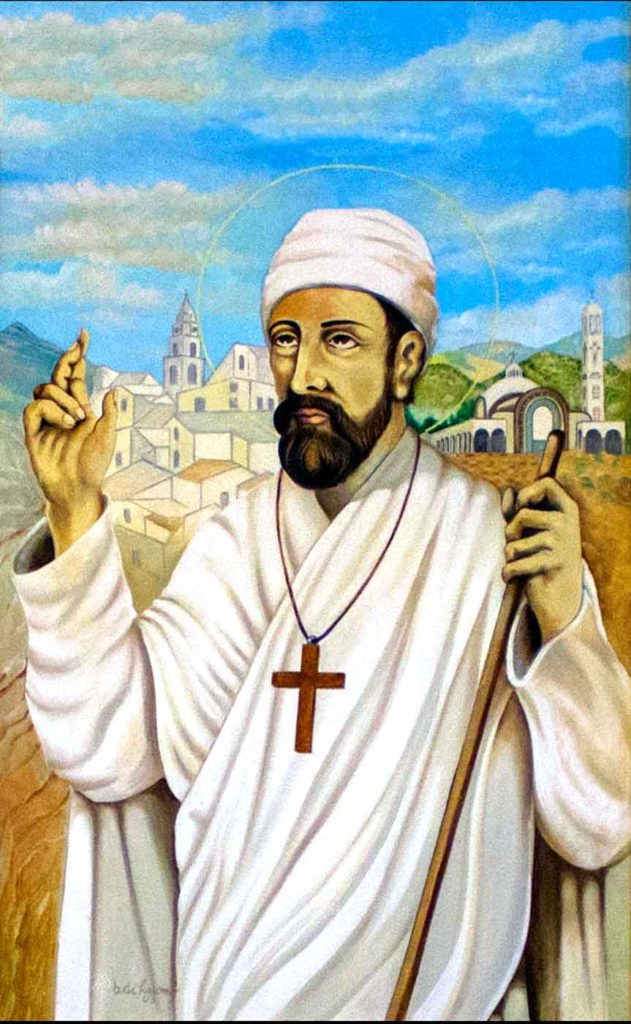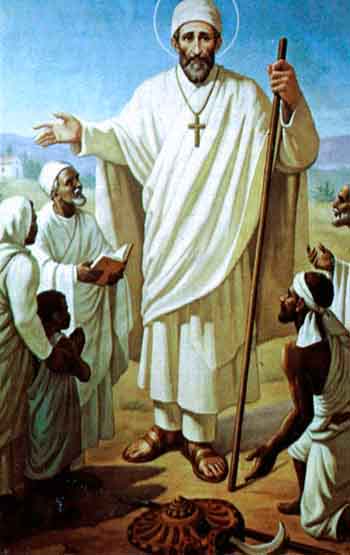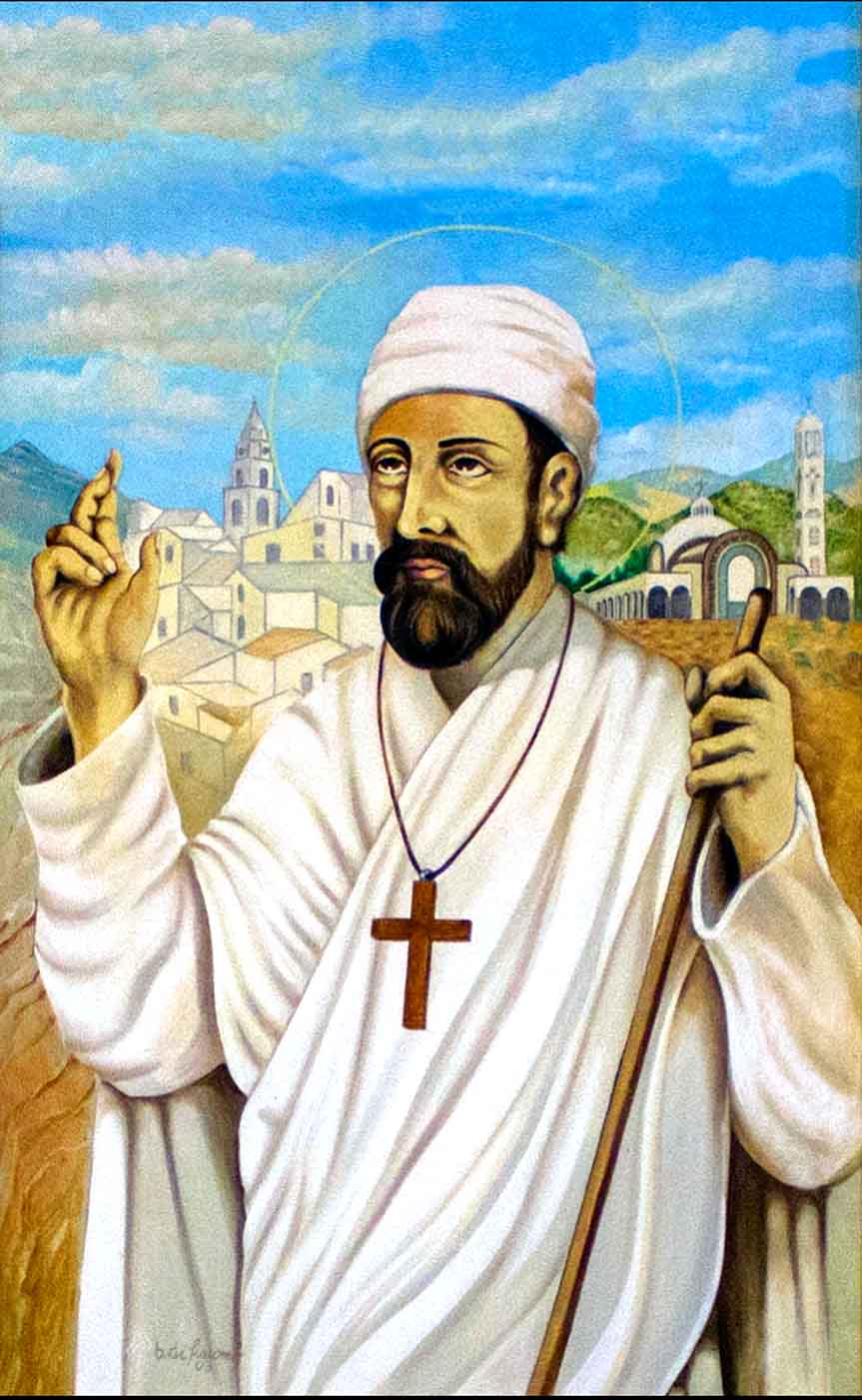July 31
Considered the Apostle of Ethiopia and Eritrea, Giustino de Jacobis was born in San Fele, Italy, Oct. 9, 1800, and discerned a call to be a missionary priest. He was ordained for the Congregation of the Mission, or Vincentian community, June 12, 1824.

At the age of 38 he was sent by Cardinal Giacomo Fransoni, prefect of the Congregation for Propagation of the Faith, as a missionary to Tigrai, Ethiopia and was named prefect of Abyssinia, Ethiopia, a jurisdiction that included what is now Eritrea. He worked first in Adua and then in Guala, where he immediately thought of forming Ethiopian priests, and founded a seminary called “College of the Immaculate Virgin.” He was appointed titular bishop of Nilopolis and vicar apostolic of Abyssinia in 1847, a title he didn’t want to accept initially.
He faced fierce opposition from the Ethiopian Orthodox Church for his missionary efforts, which included celebrating the liturgy in the local language following the Alexandrian Rite, rather than the normal Latin of the Roman Rite at the time. In addition to ordaining many local priests, he also brought many Orthodox priests into full communion with Rome.
“In his zealous ministry he worked tirelessly to ensure that this portion of the People of God might rediscover the original fervor of faith, sown by the first evangelizer, St. Frumentius,” Pope Benedict XVI remarked to the community of the Pontifical Ethiopian College in the Vatican in 2011.

“With farsightedness Giustino perceived that attention to the cultural context must be a privileged path on which the Lord’s grace would form new generations of Christians,” he added. “Learning the local language and encouraging the age-old liturgical tradition of the Rite of those communities, his approach was effectively ecumenical. For more than 20 years his generous priestly, then episcopal ministry benefited all those he met and loved, as living members of the people entrusted to his care.”
This led to persecution from Emperor Tewodros II in 1860, with the backing of Ethiopian Orthodox Patriarch Abuna Salama III. Giustino went into exile in Halai, Eritrea, where he died July 31 of that year.
“On returning to your original communities or accompanying your compatriots who have emigrated, may you be able to inspire in each one love for God and for the Church, following the example of St. Giustino de Jacobis,” Pope Benedict told the seminarian. “He crowned his fruitful contribution to the religious and civil life of the Abyssinian peoples with the gift of his life, silently given back to God after much suffering and persecution.”
He was beatified by Ven. Pius XII June 25, 1939 and canonized by St. Paul VI Oct. 26, 1975. St. Giustino de Jacobis is patron of missionaries, and a patron of the Diocese of Phoenix Eritrean community that worships quarterly at St. Louis the King Parish in Glendale.







